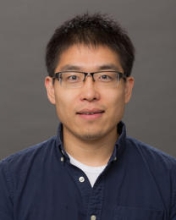Topological Phenomenon Could Lead to Faster Optical Communications

A new study led by physicist Bo Zhen investigated topological phenomena in open, or non-Hermitian, physical systems which could potentially lead to novel methods in optical communications and better optical sensors. Optical communications use light to carry signals instead of electrical current and are a staple of many modern data centers. This research, published in Science, connects the fields of topological photonics, non-Hermitian physics, and singular optics, providing a framework to explore more complex non-Hermitian topological systems.
In classical mechanics, Zhen explains, there is a relationship between the energy and momentum in a system, called dispersion. One example of this is someone riding a bicycle. The momentum and kinetic energy, both associated with this person, follow the dispersion relationship. But if one were to ride a bike through many bumps or other obstacles, the dispersion relationship between momentum and energy would start to change. With this in mind, one might be able to engineer the arrangement of the bumps to tune this dispersion relationship.
The same is true for photons, particles of light. When transmitting in air, the energy of photons is linearly proportional to momentum. But in this research, Zhen and his collaborators showed that when light is sent through purely transparent objects, but with nanoscale periodic patterns in them, the dispersion becomes rather exotic, instead of being linear.
Click here to read the full story.





